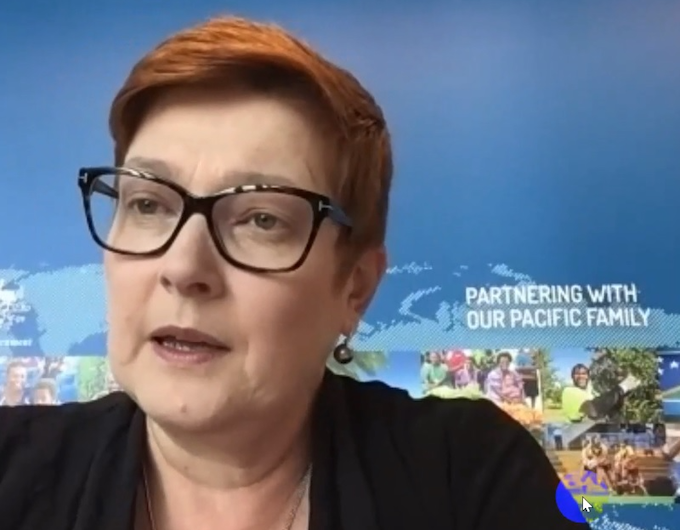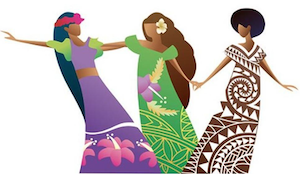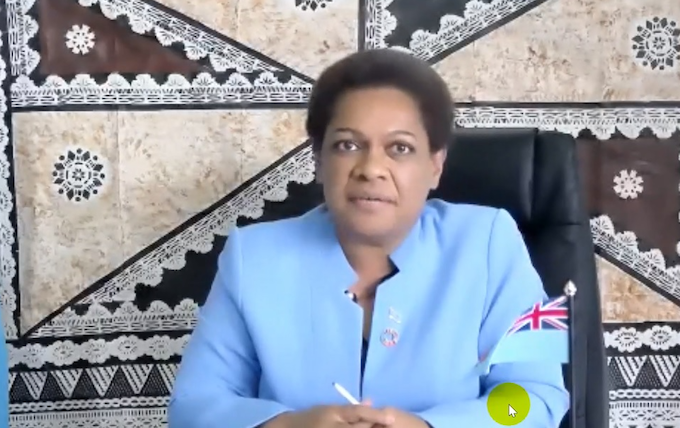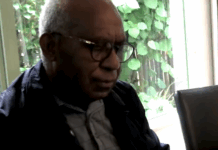
By Josefa Babitu
The Australian government has announced an A$170 million (F$267 million) programme for the Pacific region to strengthen gender equality initiatives over the next five years.
The commitment was revealed by Australia’s Minister for Foreign Affairs and Women Marise Payne during the high-level ministerial session at the 14th Triennial Conference of Pacific Women hosted by French Polynesia this week.
Payne said the programme reflected the importance of strengthening women’s leadership and would complement the work they were already engaged in with bilateral partners on gender and development.

“We’ll work in partnership with regional organisations and Pacific women’s funds and organisations. It’s a flexible programme designed to respond directly to partners’ needs,” she said.
“We want to build on our successes and learn from our experience. We’ll also focus on women’s rights, on safety, economic empowerment, on women’s health, including sexual and reproductive health.”
The challenges ahead for the Blue Continent included tackling the current pandemic and ensuring a sustainable future for the Pacific region, according to Payne.
“Addressing global challenges such as climate change requires us to use all of our resources and potential – that’s 100 percent of our populations,” she said.
Ensuring women’s safety
“If we ensure women’s economic security, we ensure their safety. We promote their health and wellbeing that’s not only of benefit to women and girls but to their entire communities.
“That’s one of the reasons Australia pivoted our development partnerships to better respond to the unique challenges posed by covid-19 through our partnerships for recovery strategy.”
She said they were working with Pacific partners to strengthen the region’s economic recovery, its health security and stability.
Australia has also partnered with regional stakeholders to deliver safe and effective vaccines as well as vaccine delivery.
These objectives, she said, could not be accomplished without first addressing the structural and cultural barriers that exclude and discriminate against women.

Fiji’s Minister for Women, Children and Poverty Alleviation Mereseini Vuniwaqa said the triennial conference and subsequent 7th Women’s Ministerial Meeting opening on Tuesday was an opportunity to be inspired, learn and recommit efforts towards accelerating and progress the goal of achieving gender equality through the endorsement of a bold, action-oriented, inclusive and transformative outcomes document.
“This is about reaffirming leadership, commitment along with concrete actions to prevent male violence against all women and girls before it starts,” she said.
Building back better
“It is acknowledging that, our work and efforts must address urgently the intersections between, women’s economic empowerment, unpaid care, safety, leadership, social protection and climate crisis preparedness and resilience.”
Vuniwaqa said recognising that building back better from covid-19 needed all women and girls at the centre, leading, making decisions that served the planet, addressed inequalities, and achieved equal power-sharing.
“It is also about recognising that data and statistics that adequately reflect the lived realities of all women and girls of the Pacific — gender statistics for short — are critical and indispensable tools for developing evidence-based policies, legislation and solutions to achieve gender equality and empowerment of all women and girls,” she said.
More than 1000 people participated in the conference, which ends tomorrow and delivered via a blended approach of in-person and virtual interaction given that travel restrictions are still being observed across the region due to the covid-19 pandemic.
The event was organised by the Pacific Community (SPC) with funding support provided by the Australian government and the Spotlight Initiative.
Josefa Babitu is a final-year student journalist at the University of the South Pacific (USP). He is also the current student editor for Wansolwara, USP Journalism’s student training newspaper and online publication. He a participant in the Reporting on Women’s Economic Empowerment workshop organised by the Pacific Media Assistance Scheme (PACMAS) in collaboration with the Pacific Community (SPC).











































